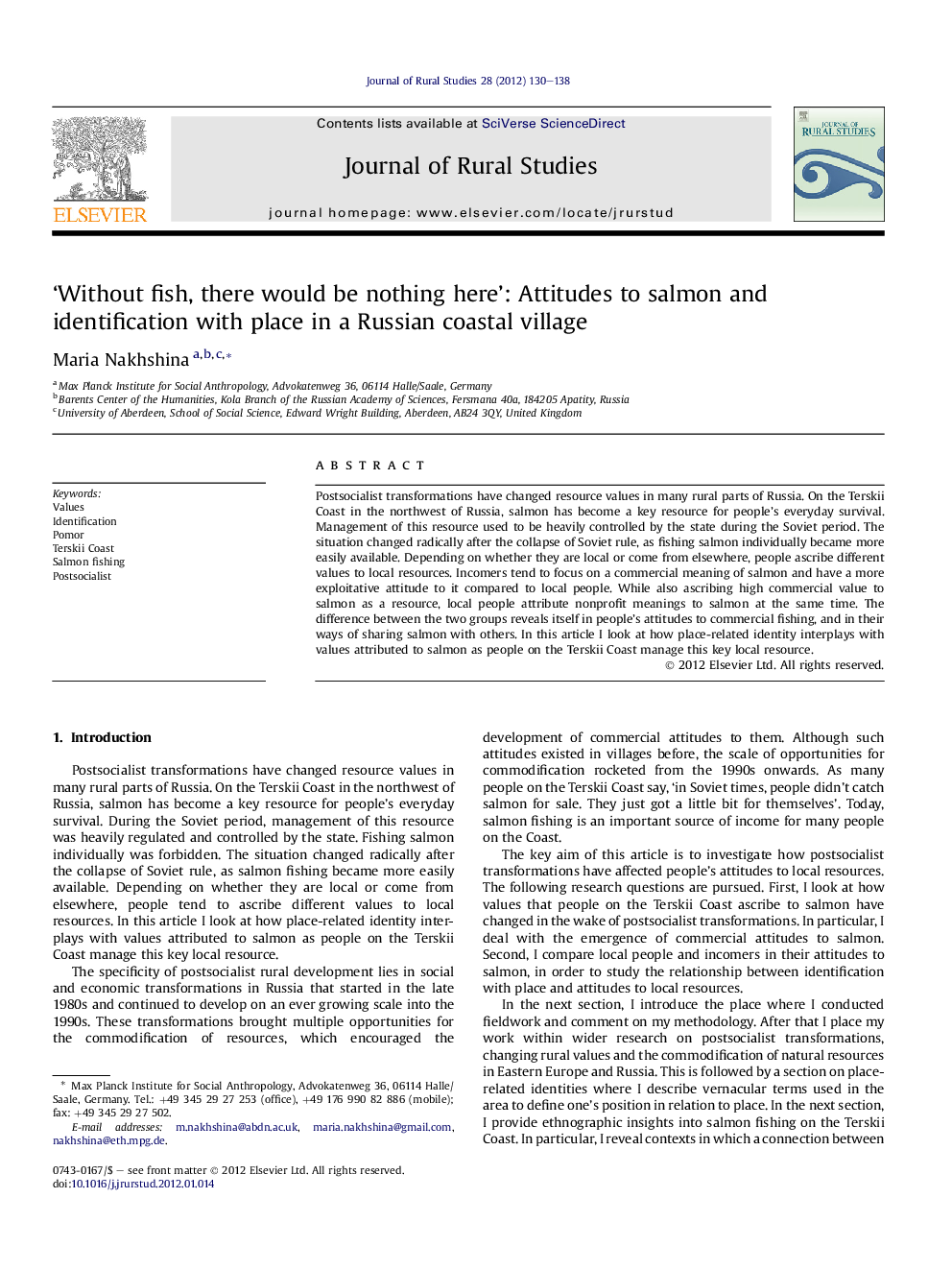| کد مقاله | کد نشریه | سال انتشار | مقاله انگلیسی | نسخه تمام متن |
|---|---|---|---|---|
| 92474 | 159973 | 2012 | 9 صفحه PDF | دانلود رایگان |
Postsocialist transformations have changed resource values in many rural parts of Russia. On the Terskii Coast in the northwest of Russia, salmon has become a key resource for people's everyday survival. Management of this resource used to be heavily controlled by the state during the Soviet period. The situation changed radically after the collapse of Soviet rule, as fishing salmon individually became more easily available. Depending on whether they are local or come from elsewhere, people ascribe different values to local resources. Incomers tend to focus on a commercial meaning of salmon and have a more exploitative attitude to it compared to local people. While also ascribing high commercial value to salmon as a resource, local people attribute nonprofit meanings to salmon at the same time. The difference between the two groups reveals itself in people's attitudes to commercial fishing, and in their ways of sharing salmon with others. In this article I look at how place-related identity interplays with values attributed to salmon as people on the Terskii Coast manage this key local resource.
► Postsocialist transformations have changed resource values in rural parts of Russia.
► Salmon fishing is a key resource on the Terskii Coast in northwest of Russia.
► There is difference between locals and incomers in values they ascribe to salmon.
► People appeal to their identification with place to regulate access to resources.
Journal: Journal of Rural Studies - Volume 28, Issue 2, April 2012, Pages 130–138
